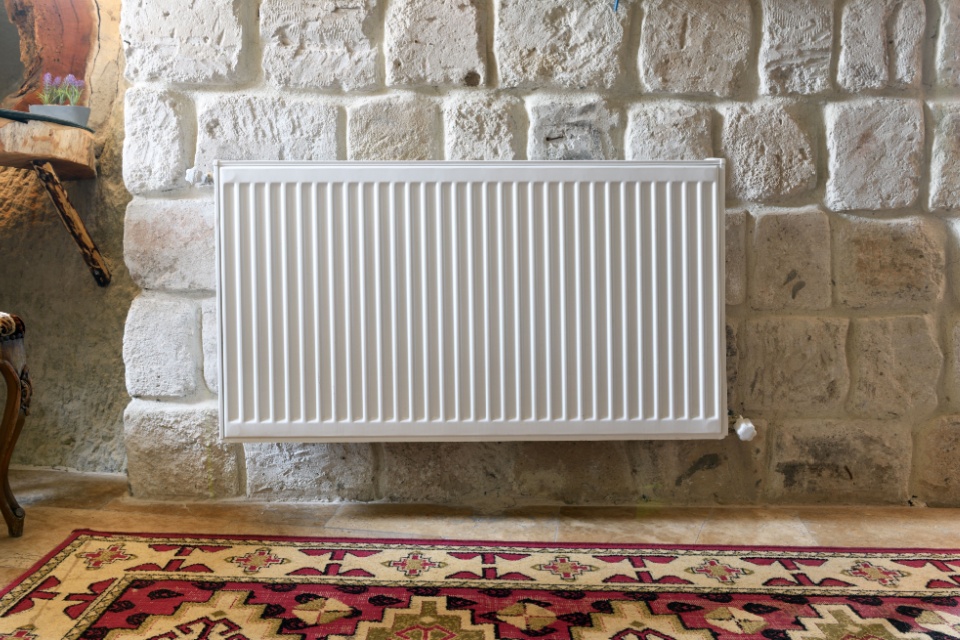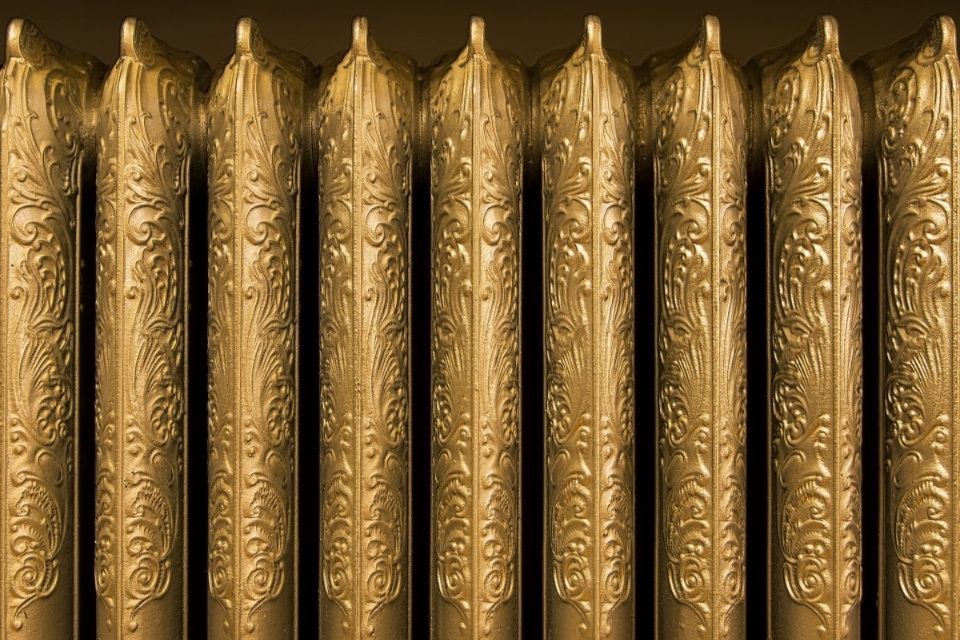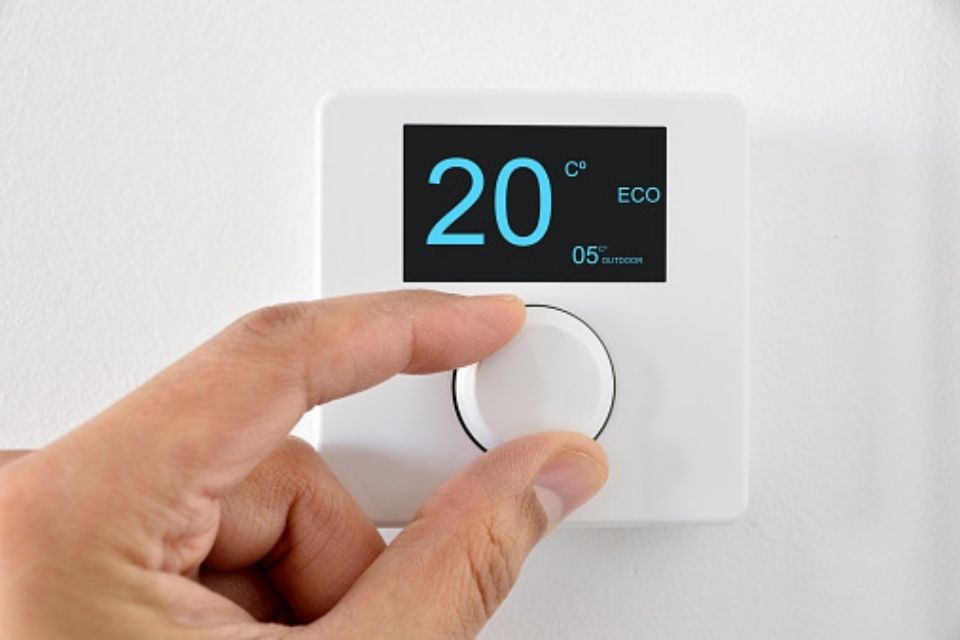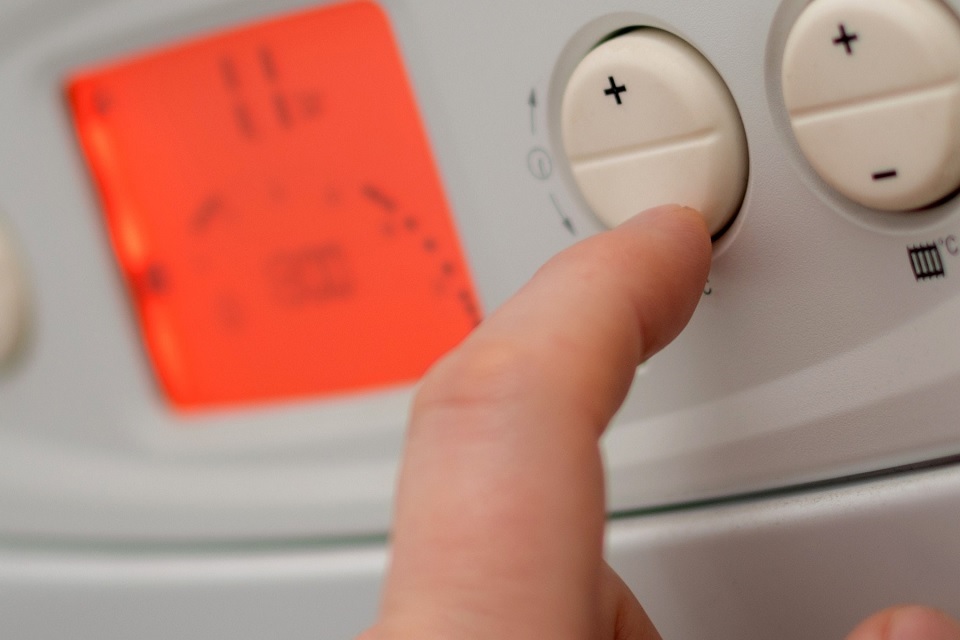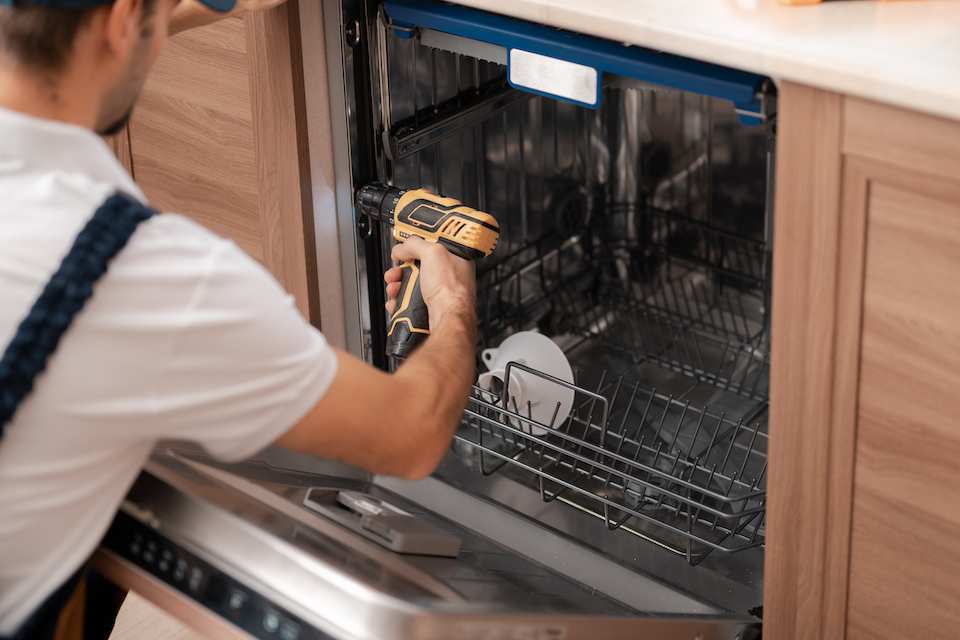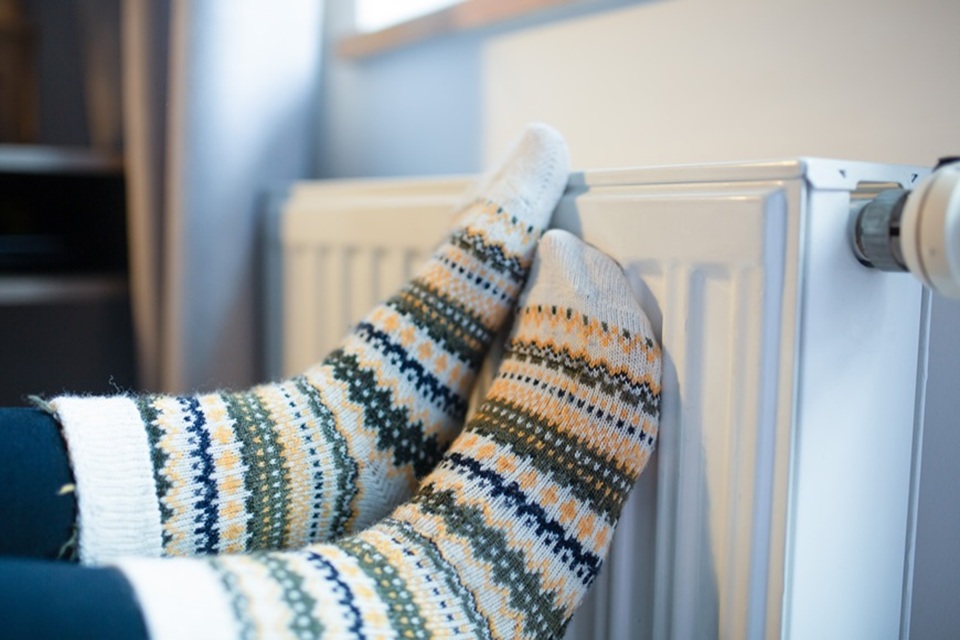Fixing a Noisy Radiator
Battling a noisy radiator running water? Does it sound like the gurgling noise made by kettles, just as they're about to boil? No doubt, such sounds can be very irritating and slightly embarrassing when visitors are around.
On the contrary, the design of radiators is such that they're naturally silent creatures. Since their sounds aren't meant to draw much attention, any audible sound you get from your installation indicates the presence of a huge problem that needs addressing.
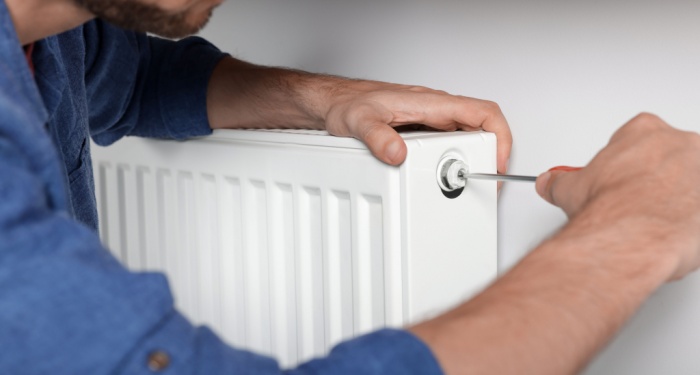
Hearing clicks, pops, along with noisy radiator pipes, or a noisy radiator valve doesn't mean your radiators are at risk; it is a natural occurrence that could be caused by several things. That said, a radiator repair might be necessary if the problem is more serious.
This article is a clear and comprehensive write-up which explores all issues surrounding the use of radiators and is especially helpful for radiators not working. We will explore all things radiator, from the types of valves used to the best DIY solutions to installation issues.
Furthermore, if you're a handyperson or a DIY enthusiast, this article will speak to your needs and will keep you adequately prepared for any problems that might come along the way.
Why is My Radiator Noisy?
This is a question most homeowners ask, with fear in their voices. It is true that radiators must be silent at all times, with their design blending flawlessly into the interior of your home.
Sometimes, you hear foreign sounds emanating from your unit. Even though such an occurrence isn't normal, it shouldn't be a significant cause for alarm, since it can be fixed in record time. More so, regardless, of the noise heard, ensure that your heater still works, and it only needs a little adjustment.
There are several reasons you will hear clicks and taps coming from your radiator, and most of them are caused internally. Some of the significant causes, according to experts, include the build-up of limescale, dirty or blocked radiators, an open bleed valve, the presence of air bubbles, and warping of your pipes.
In all instances, expert plumbers advise that there's nothing to worry about when noise is heard from your radiator. In some cases, the ticking, clicking, or gurgling heard in the pipes could be as a result of the expansion and contraction process that happens with the metal of the radiator.
The best trick to identify the cause of any noise is to know the source of the sound. Is it coming from under the floor, or is it in the walls? Sounds coming from the floor indicate that your pipes are merely expanding and contracting. Another reason is the presence of excess air in the radiator, loose pipes under your floors, and even a pinhole leak.
Sludge & Limescale Build-Up
Any noise in your radiator that is similar to the sound of a whistling kettle is caused by the build-up of limescale in the heat exchanger. When this occurs, water flow is restricted. In order for water to come through, it needs to push excessively, and this push comes with a gurgle.
Having dirt build-up consistently in the radiator makes it difficult for the unit to operate at its full capacity. This often leads to damages, resulting in an expensive repair. What's more, when your heater is blocked with dirt, it needs to work extra to provide you with the same amount of heat your home needs. The extra work bumps up the heating costs, which we all dread.
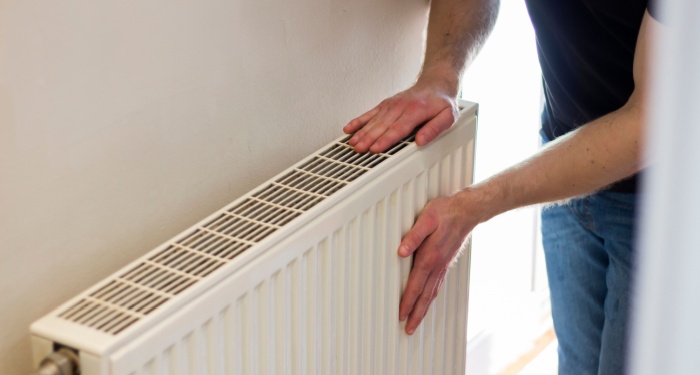
That said; sludge and limescale are the two most characteristic elements that block up radiators. Sludge is a mixture of rust and dirt, which is known to build up slowly, gathering at the bottom of the radiators in the process.
The presence of sludge in a radiator creates cold spots where hot water cannot move through. Besides your bills increasing, the blocking of your radiator with limescale or sludge damages your heat pumps, the valves, and, ultimately, the boiler itself.
Radiators Need Bleeding
The second major cause of noises in radiators is when the radiator is in need of bleeding. Bleeding is a process done for radiators when they're blocked or dirty.
The major sign of a blocked or dirty radiator is coolness at the top of the unit. The build-up of air or dirt in your radiator can be caused by an open tank in the loft, installing the pump above your supply tank, and the presence of rust on your pipes.
Pinhole Leak
Every part of your home goes through growth, with some areas getting older than others. Radiators also get old, and their efficiency is reduced. During your unit's old age, it'll experience some form of leaking, caused by the build-up of sludge inside the radiator. This sludge destroys the heater, with the rot starting from the inside out via leakage which is commonly referred to as the 'pinhole leak'.
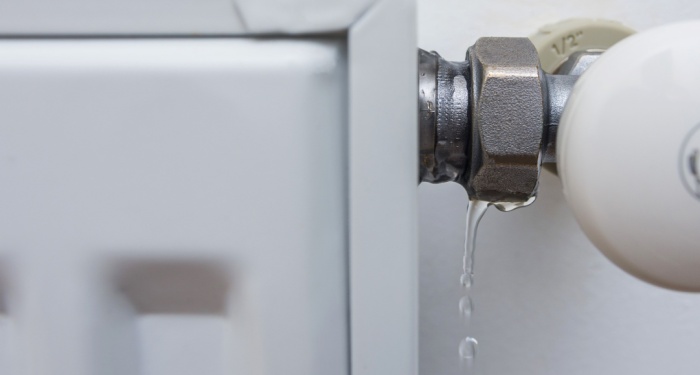
There are many reasons why the pinhole leak will occur in a radiator with corrosion being the most common, mainly because the radiator is made up of a lot of metals. Another cause of leakage is over-filling the radiator. This process leads to an increase in water pressure, and this resultantly hurts your radiator. Pinhole leaks are also very common in radiators but are very easy to deal with.
How to Fix a Noisy Radiator?
Noisy radiators did affect our ears only. When left to go on for a while, they can damage your pipes and the entire radiator system. For you to fix this issue properly, and prevent any further damage, you need to know the cause of the noise.
Having such information allows you to invest in the most appropriate artistry and parts and will prevent you from damaging the unnecessary part of your boiler. For the most common cause of noisy radiators, the first step to take is to turn down the thermostat, to prevent it from cranking up. The large nuts holding the steam pipe and radiator together will have to be loosened next but be sure to be clear on scalding water.
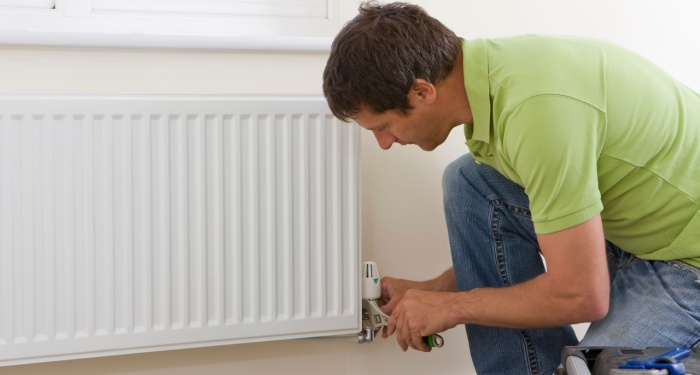
Once the nut is loosened, you can slip a few wood blocks or furniture floor guides beneath the low end of your radiator. You can now reattach the large nut to the steam pipe, turn the thermostat and use your radiator free from leakages.
Sludge & Limescale Build-Up
The best person to help fix your radiator when you think you have sludge or limescale blocking water flow is a registered engineer. Doing this yourself can be very dangerous, especially if you're not conversant with the radiator's parts.
That said, if you're confident you can handle the job, the first solution to sludge and limescale is to conduct a power flush. This is done with the machine connected to the radiator system. The machine uses low but powerful pressure to push liquid through the system.
The process causes all sludge and rust to dislodge from their current location, through the pipes and out into the machine. Flushing can take several hours to complete, depending on how long the sludge has been accumulating or the size of the radiator.
After the power flush, you will notice fresh, clean water coming from the central heating system, often laced with an inhibitor solution to prevent sludge from building up again.
Below is another common method to remove limescale and sludge:
- Make sure the heating is completely turned off.
- Spread sheets on the work floor, especially under the valves. This is done to collect all gross sludge that will come from your radiator.
- Disconnect the radiator from the rest of the system by turning off the valves. To do this, twist the thermostatic valve to the off or 0 positions, and then look for the lockshield. The lockshield should be viewable after the valve's plastic cap is taken off and must also be turned off using a wrench.
- Next, turn the valve clockwise, counting the number of turns made for when it's time to reassemble.
- Open the bleed valve and allow the bucket and sheets to collect any sludge that comes pouring out. To bring more goop out, tilt the radiator slightly.
- After everything has been brought out, use the key to close the bleed valve. Take the heater somewhere safe and hose it down, removing any limescale or sludge that may be hanging on for dear life.
- Retrace your steps and reassemble the radiator. Now, you're ready to use a noise-free unit!
The first application should be made by a professional, while the second is ideal for DIY enthusiasts conversant with the working of a radiator. If you have no experience, it is safe to rely on the experts to prevent any further damage.
Radiators Need Bleeding
With this method, you'll have to turn off the heating if you want to avoid scalding at all costs. Another reason why the heat needs to be off is to allow you to bleed the radiator without water spraying.
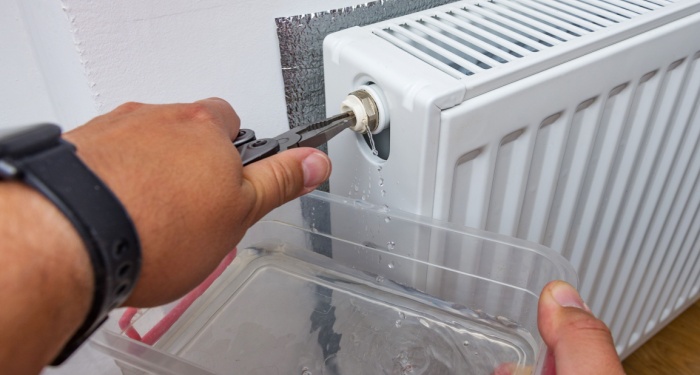
Next, open the valve on top of the radiator, with help from a radiator key. In the centre of the valve lies a square groove. Attach the key to this groove and turn it anticlockwise slowly. Doing this will produce a hissing sound, which signifies the escape of trapped air. If there's any water coming out, use your cloth to catch it.
Once the hissing ceases and you're left with liquid, retighten the valve as quickly as you can, as every delay allows more water to pour out. The bleeding process is now complete, but it's time to check the pressure of your radiator. Bleeding is known to reduce the pressure of your machine; thus, after completing the procedure, you must look at the gauge on your boiler and adjust the tension as and when needed.
Pinhole Leak
If the pinhole leak is caused by corrosion, there really is nothing you can do about permanent fixing; only a temporary repair can be made until the unit is replaced. To take the provisional measure, you will need to alter your feed and expansion tanks.
These tanks are responsible for maintaining the water levels of your system. To fix the leak, you will need a plastic resin sealant added to the tanks. The idea is for the resin to stem the flow until a replacement is found. More so, if you're using a sealed central heating system, you must not use this kind of sealant for your leaks, which will damage the system beyond repair, and bring about additional costs.
Pipe Cushioning
An extra solution to noises from your radiator is to cushion your pipes. This is the best solution if the sounds coming from your system exist because of regular expansion and contraction.
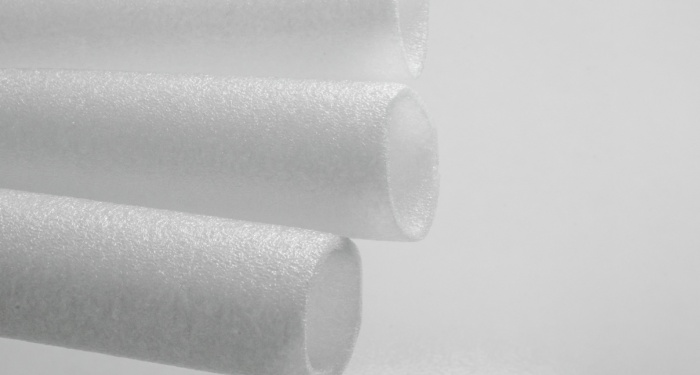
Cushioning takes away these clicks and creaks as quickly as possible. To cushion the pipes, you can either move the furniture your pipe is expanding against away or use it to expand foam insulation.
How Much Will It Cost to Fix My Noisy Radiator?
Radiators can be very complex units, though they look very simple on the outside. The complexity of these units makes their diagnosis and repair very tricky and tough to repair, hence why many people opt for replacement. According to the national average, the cost to replace a double panel radiator typically stands at £200 for a 2-3 hour job.
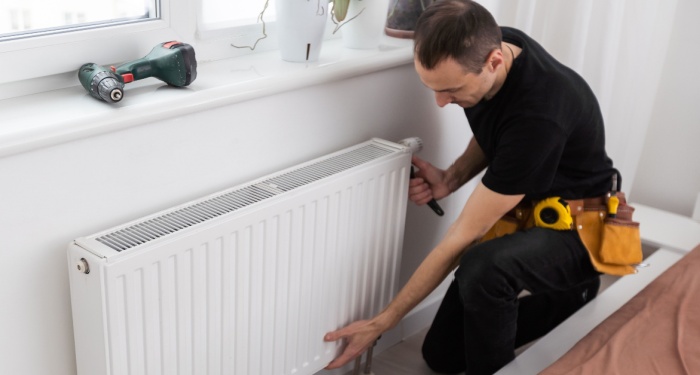
However, the costs vary a great deal depending on the model, brand, parts, and the varying labour charges across the globe. Despite these potentially high prices, the good news is that for some of the issues experienced with radiators, you can fix and repair your system yourself, provided you're an experienced handyperson. Before employing anybody, it's best to get an estimate on the cost to replace a radiator. This will prevent you from being cheated or deceived.
How Much Fixing Specific Problems Will Cost in Labour
Labour charges are given per the kind of damage your radiator is faced with but typically sit at £120. Also, knowing the cause of the issue helps the artisan know the duration of the repair and the types of parts and tools they will require.
If the artisan has to get parts like valves and vents, expect to pay up to £80. More so, to get a diagnosis before the repairs, some companies offer a flat fee for the inspection, while others decide to charge hourly.
How Much a Heating Engineer Gets Paid Per Hour/Per Day
Labour costs are the charges and claims made by plumbers and engineers involved in the repair process. The first step to finding the best person for the job is to search for radiator specialists around you.
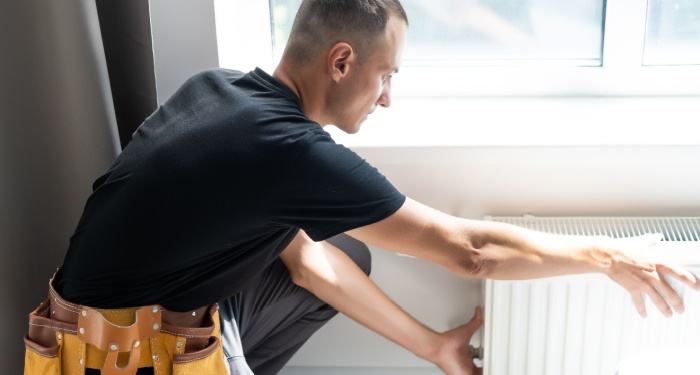
Choosing someone close to you eliminates any transportation costs, which makes them relatively cheaper. Many heating engineers charge by the hour, with their charges being based more on the diagnosis of your radiator than anything else.
Based on the diagnosis, they can tell you how many hours will be spent in repairs, and ultimately quote a set rate for the process. A typical hourly charge is between £85 and £150, and this is charged after the initial service fee.
How Much is a Replacement Radiator?
The price of a replacement radiator will differ based on the complexity of the job, the type and brand of the radiator as well as the pipework used for the procedure. Concerning duration, it takes only a couple of hours to repair a radiator adequately, so you won't have to pay a lot for labour.
Another thing to consider before replacing the heater is that the price for replacing is separate from that of installing a new unit. Once you've decided to remove the existing radiator and replace it, you should be ready to invest between £150 and £200.
FAQs
Q: Which radiator to bleed first?
A: If you live alone and have only one radiator operating in the building, you have no issue. The issue arises when you have to go higher. It is best to begin the bleeding process from the radiator at the very bottom if there are two or more floors.
If there are multiple units on the ground floor, start working with the one that is furthest away from the boiler. From the ground floor, you move up slowly, always remembering to begin with the radiator furthest away from the boiler.
Q: What are the two valves on a radiator for?
A: Every radiator, no matter who the designer is, has two significant valves it operates with. These valves are also considered taps since they work in the same manner; they help you keep track of the amount of heat expelled.
One pipe is responsible for the control of hot water coming into the radiator. The second valve, known as the lockshield valve, exists to balance the system by keeping track of how much heat is emitted by your heater.
Q: How do I stop my radiator from making noise?
A: Check the low end of your radiator and then shim It up to make sure that all condensed water has come out. This will help stop the noisy knocking. To shim up the heater, turn the thermostat downwards, and loosen the large nut that keeps the steam pipe and radiator attached.
Other solutions include pipe cushioning, bleeding the valves, replacing the radiator is its old and worn out, and tightening the screws which hold the radiator in place.
Q: Can radiators explode?
A: Yes, radiators explode, but not like bombs. They usually experience what's known as a blowout. When this happens, your home can become flooded in minutes. Blowouts occur when your radiator bursts inside your heating system, and it can be a nightmare when it happens.
The bursting of a radiator occurs when there is plenty of pressure built up in your order. The pressure makes certain spots in your system weak. More so a blowout comes with the dangers of steam burns since it occurs as a loud gush of steam and water. As this water continues to flood your home, it can cause other problems like weakening your structure, affecting your gadgets, and a multitude of other issues.
Q: Are noisy radiators dangerous?
A: Typically, noisy radiators are something that mustn't be worried about too much. It could happen because of many different things, like the warping of pipes, clogging, and even consistent expansion and contraction. The only time a noisy radiator can be dangerous is when the clogging leads to a blowout.
As stated earlier, this can cause first degree burns to anyone in contact with the heater, and parts of your home can be damaged as well. It is best to attend to noises in your radiator early on, to prevent any further damage from occurring.

